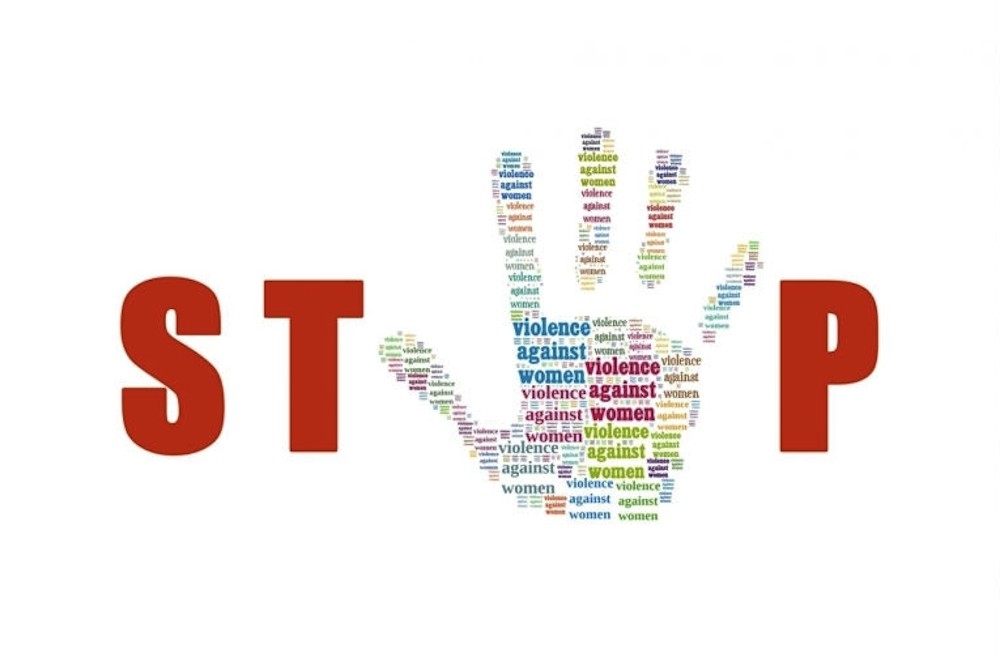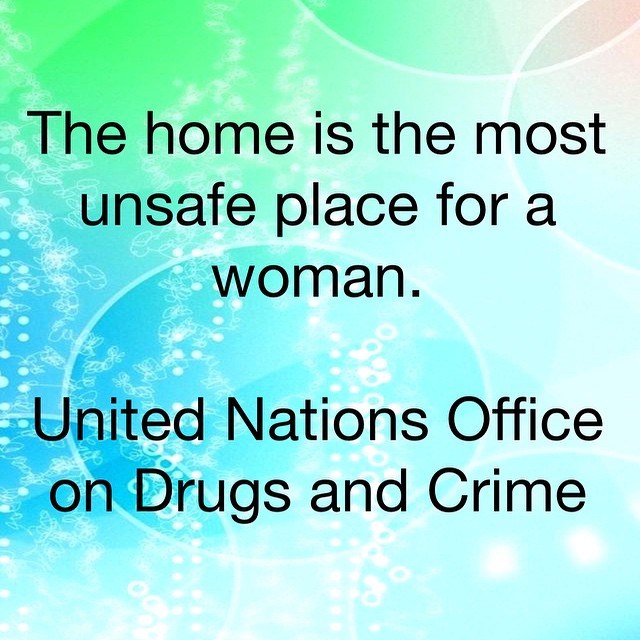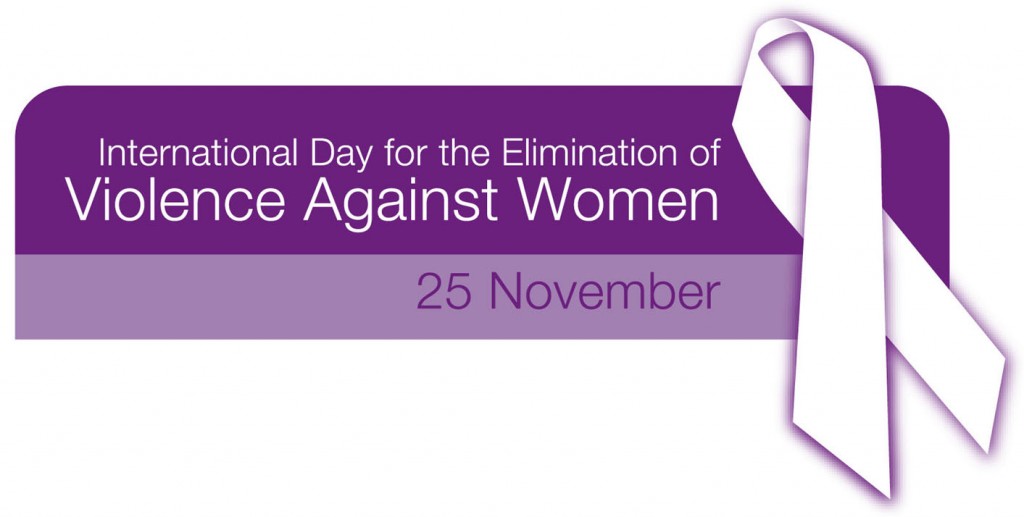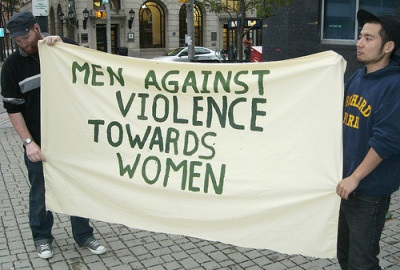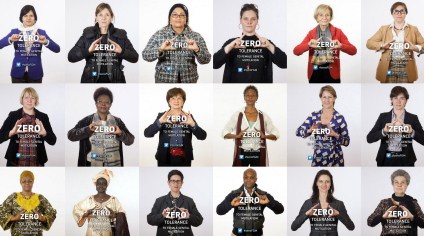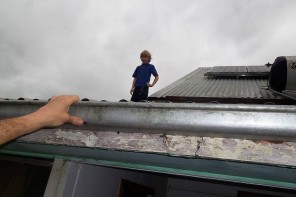Four days ago, Ken Lay, former Chief Commissioner of Victoria Police and Chair of the COAG Advisory Panel on Reducing Violence against Women and their children, delivered COAG’s Keynote address at Monash University in Melbourne. The powerful words he spoke on the International Day for the Elimination of Violence Against Women, are rippling out into the wider community, and we’ve reprinted them here in full…
Please let me begin by acknowledging the traditional owners of the land on which we meet, the people of the Kulin Nation. It is upon their ancestral lands that this place is built, I pay my respects to their elders, both past and present.
And today … on this International Day for the Elimination of Violence against Women and Children … I also acknowledge the many thousands of woman and children who have been murdered, maimed or otherwise harmed by those men who professed to have loved them, it is for them that we do what we do.
I’m not going to open today with statistics.
I’m not being dismissive.
As a former police officer, I dealt with numbers.
Data was important to me.
Our policies needed to be guided by evidence:
not suspicion
not prejudice
not habit
not populism
But – we should remember there are painful personal stories behind these statistics – there are also attitudes and cultural complacency. That’s what this research tells us.
In the decades I spent at Victoria Police, I saw and heard things. Abuse, violence and neglect. Things I will never forget.
But when I was presented this research, it touched me.
In this study, children and young adults already possess some dispiriting ideas about themselves and about gender.
When presented with some scenarios on aggression by boys, I heard with sadness about 10-year-old girls already diminishing the abuse they received from boys.
I heard girls say about boys harassing them: “It’s not that bad, it’s not like he punched her”
I heard boys justifying the violence by simply saying that they just want to be heard – that it was harmless.
And for all the things I’ve seen in my many years at Victoria Police, this important evidence of the origins of gendered violence … and our complacency to it … brought me to tears.
I felt embarrassed.
I felt ashamed.
It got me thinking, the State with all its power and authority is simply not enough to stop the fundamental drivers of family violence.
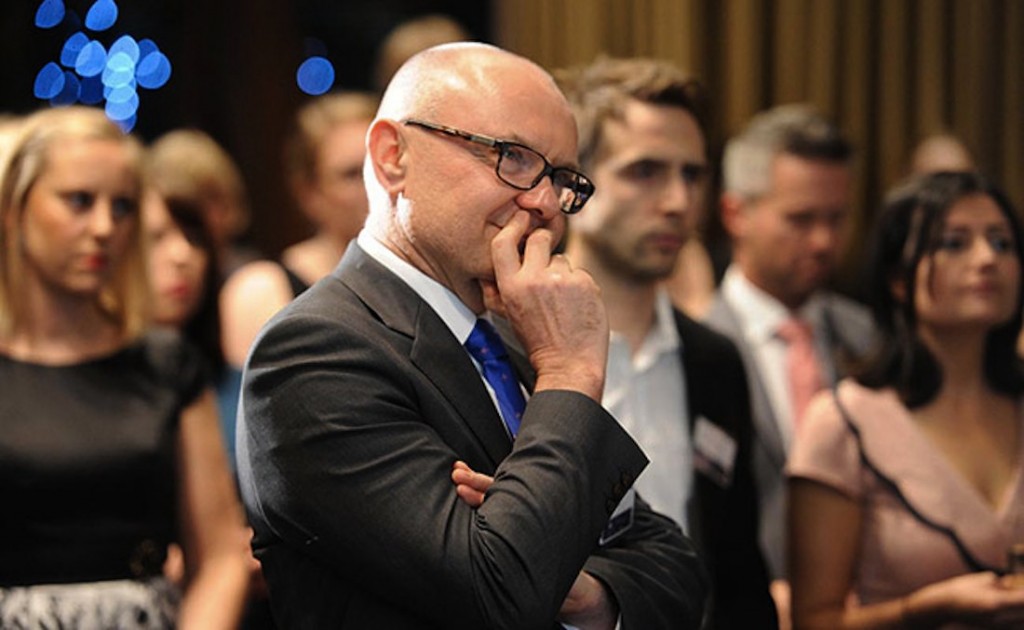
Ken Lay, Chair of the COAG Advisory Panel on reducing violence against women and children on November 25.
When I was chief commissioner of Victoria Police, I led an organisation of around 17,000 people – the vast majority being sworn officers. An organisation of men and women of enormous powers, talents and responsibility, a police force is one of the most powerful and obvious manifestations of state power.
I led forensic teams and detectives; the Special Operations Group and water police and thousands and thousands of men and women patrolling our streets and our communities 24 hours a day … seven days a week … 365 days a year. Men and women trained in counter-terrorism, negotiating hostage sieges and intelligently interviewing killers. In other words, men and women of great training and commitment each who had been empowered by the State.
But here’s what I thought when I saw this research.
For all of the training, the equipment, the power to investigate and arrest – none of this can touch the attitudes we impress on our children.
None of this can enter our homes, our minds, our families.
None of this can alter the way we think about ourselves, or our children.
The State’s power is mostly executed at the very end of the family violence continuum. It’s when the ideas and values adopted as children have grown destructively.
The police operate at one end– this research speaks at the other end – where the violence is formed. This research tells us – there are some poisonous and deeply entrenched ideas about gender. I’ll explain some of them soon – but I want to suggest to you today that it is not the State’s role to modify or refine our shared values.
That’s a job for all of us and we have done it before.
Take child abuse. It offers a powerful example. We forget child protection legislation is a relatively new development.
For centuries, children were considered property. Exploited for sex, for labour, for the rough depositing of our own values. Historically, we had a casual contempt for children. Casual in that the contempt was buried deeply, practiced often, but rarely thought about. Attitudes can be very difficult to change because after a while they become invisible and as natural as taking a breath. The royal commission into institutionalised child abuse has exposed decades of squalid and systematic abuse of children. Recent decades were filled with men who winked happily about their preferences for schoolgirls.
Their behaviour was seen as harmlessly roguish, just another example of boys being boys. Jimmy Savile and Rolf Harris were vile predators, but they were helped by a complacent culture.
Why am I making the link between child abuse and domestic violence?
Because for decades our casual complacency and contempt for children allowed child abuse to prosper.
And in 2015, our culture is possessed of similarly destructive attitudes about gender that allow domestic violence to prosper.
This research says as much. Attitudes that are so embedded that we don’t challenge them. We can’t challenge them because at times we can’t see them. This research confirms what I’ve long suspected – that the abuse of women is supported from a very early age. The research confirms that adults are harmfully shaping children’s destinies because of unchallenged and unfair assumptions about gender.
What this research emphasises – and its findings are repeated in countless other studies – is that we develop male privilege early. Knowingly or not, we give boys licence to act abusively and we develop in girls deference to that behaviour.
Boys will be boys … and it’s up to girls to adjust accordingly.
But this confuses cultural values with biological ones, this isn’t nature, this is nurture.
I’ll explain.
The research reveals stark patterns in our parenting and mentoring of children.
This isn’t theory. This is the voice of our kids.
It’s our voice.
As a society:
We make excuses for boys, and subtly encourage girls to do the same.
We are sympathetic to boys’ behaviour and more suspicious of girls’.
We dismiss boys’ sexual aggression as a function of their masculinity.
We minimise the behaviour.
We rationalise it.
Boys will be boys.
But it’s different for girls.
Boys are taught to blame circumstance for their aggression – girls to contemplate how they might have provoked it.
Boys learn by acting out – girls by simply enduring their experiences.
Boys are told it’s appropriate to defend yourself against a girl – but there isn’t a reciprocal lesson.
This leads to boys externalising their behaviour – when things go bad, it’s because of other people or other things.
But we encourage girls to internalise their experiences – to imagine that the fault lay somewhere deep inside them.
This research exposes mothers asking their boys: “What did the girl do?” because they hope that it isn’t their son’s fault.
Can we see what we’re doing here? The deck is stacked against women.
We’re encouraging girls to feel complicit in their own abuse.
We’re asking them to blame themselves.
This internalisation, once started in childhood can become lifelong. During early development, children are like blotting paper – and dubious lessons can become permanent.
But not only do we encourage girls to blame themselves – we’ll blame them too.
Only a few weeks ago, Detective Jason Walsh from Victoria Police went on local radio to discuss a brutal and sadistic rape. The radio host read out a few texts messages from listeners, messages that asked what a young girl was doing in a park at 4 am. I thought these questions were callous and misguided and evidently Detective Walsh did too.
This was his response: “I find it amazing, that we question girls and we question their behaviour but we don’t ask: ‘what are four blokes doing, allegedly raping a young girl?’”
Walsh went on: “You know, that’s my take on that sort of question and I’ve been in this sexual assault field for many years…
I find it amazing that people straight away question females about their actions. I mean, what are four males doing allegedly gang raping a young girl? That’s the question I’d ask. That’s the question everyone in this room should ask.
Let me go back to those questions being asked on local radio, I would find those questions about the victim amazing too, if I wasn’t so aware of what we teach our children.
If I wasn’t so aware of how casually we accept male bravado and entitlement, and how easily we teach our girls to simply avoid it.
What are we doing when we hear of an alleged gang rape and would only think of why the victim was in the park?
What are we doing when that is our first question?
Let’s pause on this – because I need your help. Together, we need to talk about this. We need to talk about what unseen expectations we have for our children because of their gender.
I think we ask women to define themselves relative to men.
If we dismiss behavior as being boys will be boys we aren’t holding them personally accountable we aren’t addressing the pre-conditions of sexism, abuse and family violence.
I’m grateful Victoria Police has Jason Walsh.
And I’m grateful for his comments – they’re important, they’re compelling and they’re wise.
Politicians … business leaders … community leaders … all of us should take note of Jason’s words.
The text messages are just the tip of the iceberg.
Those messages are proof of an expansive system of thought we are casually giving to our children.
If this upsets you … so be it.
If it offends you … so be it.
Your job – our job – is to move beyond that defensiveness.
Your job – our job – is to view your discomfort as the beginning, not the end.
If you need help, let me give you an example of our double-standards.
It comes from another story I heard from a detective. Years ago, a young woman came into a police station in the early morning. She was seriously distressed. She told officers that she had just been sexually assaulted in a laneway. She had come straight to the station from the site of the attack. She said she had been attacked from behind, when her assailant gripped her and placed a strip of electrical tape over her mouth. Horrific and frightening. But her claims were met with suspicion. Some officers weren’t as responsive as they should have been.
But there was one investigator – a thorough and credulous man. He took the victim into a room, consoled her and took a statement. And then later that day he went to the scene when others thought it was nothing more than exaggeration. He paced the laneway, turning clumps of leaves over with his toe. And then he saw it: a piece of electrical tape. He crouched beside it and saw a print of lipstick on it.
So here’s something I’ve noticed.
Claims of sexual assault inspire a higher level of suspicion that isn’t by claims of theft, fraud or street assaults.
Our doubt is much higher for women. Almost as if we assume women have less credibility whether it is in sexual assault or family violence.
I can tell you that false claims of sexual assault do occur. Just as they occur for theft, fraud and street assaults.
And I can tell you that the vast majority of sexual assault claims and family violence claims are legitimate.
So to those men who fixate on the bogus claims, I say to you that you are being intellectually dishonest. You are emotionally cherry-picking data to make a case that women fundamentally lack credibility.
The data doesn’t agree and nor do I.
We possess double standards. Standards that are deeply engrained and are a damaging outcome of our attitudes.These double standards can result in many women feeling an intense, silencing guilt about their own abuse or alienation.
So we need leadership, but before that leadership can happen we require some self-reflection.
Self-reflection is something that this research suggests is both vital and in short supply.
It helps refine our collective values, but it’s in deficit because humans are naturally resistant to criticism.
So let this speech be a wake- up call…a wake-up call to our assumptions and complacency.
It’s not enough to consider ourselves good men because we don’t bash women.
As men, this sets the bar so low, that somehow we congratulate each other for not being monsters.
That’s not useful.
It’s not helpful.
I’m asking you to think about yourselves, about your assumptions … about what lessons you are unwittingly passing to your children.
We need to set the bar much higher than we are.
In public life, I’ve noticed a sort of blokey pomposity – a desire to be seen as a community elder, but sometimes not matched in the desire to properly function as one. The result is often a thousand empty gestures, each removed from self-reflection and real influence.
There are many leaders in the room today.
We, as leaders, must acknowledge our own role in these attitudes before we offer ourselves as role models.
Our public status is not enough.
We need to ask ourselves: are we flattering our ego, or engaging in humble self-reflection?
I would argue we need self-reflection before we need insincere mutterings when the next woman or child is murdered by the very men who profess to love them. Self-reflection is not vague, nor is it indulgent.
It’s courageous and necessary.
Self-reflection shapes how we connect to our children – how we mentor our young adults.
Our young people are bright and attentive and they are watchful for inconsistency.
They have advanced radars for hypocrisy.
One of the boys interviewed said: “The message has to be consistent… if I hear one thing, but everyone else is doing something else, it means nothing.”
Lectures are not enough.
Our public statements must match our private behaviour.
If we truly believe that the future of our girls are as bright as our boys, we need to meet that desire with something other than vague commitments on one day a year.
It needs to be matched with our lessons, both spoken and lived.
How often do we tell our daughters what to wear – but rarely tell our sons what respectful sexual relations are?
How often do we warn our daughters about provocation – but rarely talk to our boys about consent?
How often do we justify the cruelty of boys? And ask our girls to avoid it.
How often do we thoughtlessly accept that boys will be boys.
The answer is … every day.
We do this as easily as taking a breath.
We don’t even know we’re doing it.
In family violence there are strong parallels to the long, dark decades where we tolerated – or subtly encouraged – child abuse.
Collectively. We failed our children
The – “collectively” – may make you uncomfortable.
“I didn’t abuse children,” you might think, and you can put a full stop on your reflection.
But visit the thousands of pages of royal commission transcripts.
Look at the transcript of the Rolf Harris trial.
Read the testimony of Jimmy Savile’s colleagues.
You’ll see that it isn’t just vile, manipulative men that can be singled out and condemned.
“I don’t bash my wife,” you say. Another full stop.
But look into coronial inquests into women killed by their partners…friends saw it, work colleagues saw it, sporting colleagues saw it, doctors saw it, teachers saw it, family saw it, many saw it.
These men were supported by indulgent and unaccountable cultures. These men were supported by a society that encourages its female victims to blame themselves and stay quiet in shame. These men were supported by our complacency, by our lack of courage to examine our lifelong attitudes.
So, when a girl can be allegedly gang raped and our first question is: “Why was she in a park at 4am?” We need to ask if our culpability is placed where it should be? When we ask that question, we put the victim firmly on the hook. But … sadly she’s already there.
My question – our question – should be:
What are we doing about it?
Thank you.

